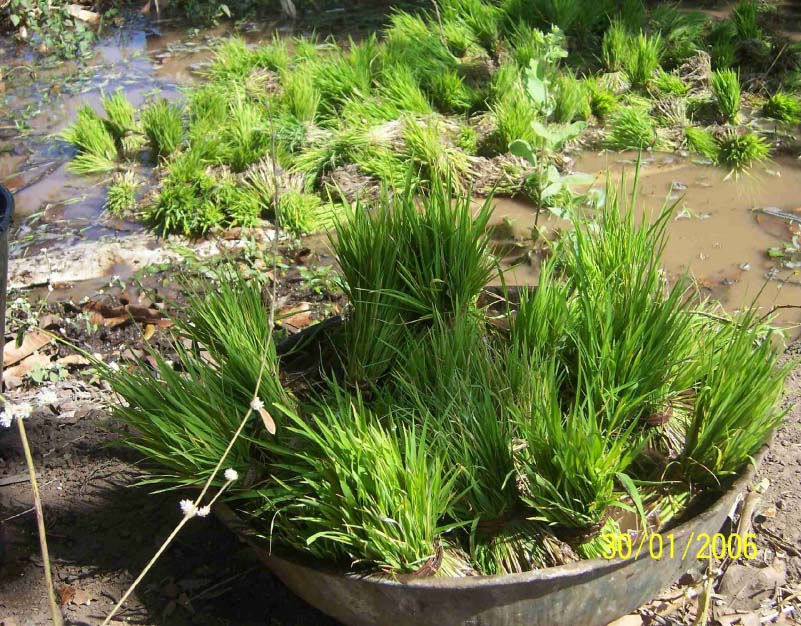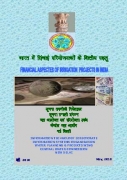/topics/irrigation
Irrigation
Introduction to organic, natural, sustainable agriculture - Presentations from the South Asia Conference on "Outstanding Organic Agriculture Techniques", Bangalore organised by OFAI (2009)
Posted on 20 Mar, 2011 05:44 PM This set of presentations from the conference on Outstanding Organic Agriculture Techniques held during September 2009 at Bangalore provides an introduction to organic farming, and bringing together various issues related to organic farming.
This set of presentations from the conference on Outstanding Organic Agriculture Techniques held during September 2009 at Bangalore provides an introduction to organic farming, and bringing together various issues related to organic farming.
Organic farming can feed the world
This presentation by Claude Alvares, deals with the work of India’s organic farming community and the Organic Farming Association of India (OFAI). It states that the best organic farmers look to the forest for their learning. It details out how one raises plants (or trees) without – (a) NPK (b) Dams and canal irrigation (c) Tractors (d) Pesticides, weedicides, fungicides, homicides (e) Bank credit or bank extension officers (f) Agricultural scientists or universities (g) Negative environmental effects like climate change and (h) Water pollution.
Socio-economic implications of depleting groundwater resource in Punjab: A comparative analysis of different irrigation systems - An EPW paper
Posted on 01 Mar, 2011 06:00 PMIt argues that while the consequences of negative groundwater draft have mostly been viewed as an ecological disaster, the externalities of groundwater depletion pose greater concern for socio-economic equity in the access to this resource.
Ancient, traditional water and agricultural management systems - A collection of papers from the national seminar on water and culture, organised at Hampi, by Sahayoga and Kannada University (2007)
Posted on 14 Feb, 2011 06:28 AMA National Seminar on Water and Culture was organised by Sahayoga and Kannada University between June 25-27 2007. The seminar was intended to provide useful documentation to those working on water and agricultural management systems, those interested in integrating these traditional techniques with modern practices and to those working towards providing sustainable access to water and food, for all common citizens.
Two ancient irrigation systems of India - Paper presented at the National Seminar on Water and Culture (2007)
Posted on 14 Feb, 2011 05:03 AMThe Phad system of irrigation, is found in Maharashtra over the rivers Panzara, Girna and Burai, which are tributaries of Tapi.
Water conservation in the dry regions of India for sustainable agriculture - Paper presented at the National Seminar on Water and Culture (2007)
Posted on 14 Feb, 2011 04:31 AMThis paper attempts to discuss farm water conservation techniques and multiple cropping patterns with the idea of minimising water use. The authors provide a glimpse of agricultural facts that include total geographical area, net sown area etc. They provide population trends in the country to point out to the water and food stress.
Participatory Irrigation Management (PIM) in Andhra Pradesh - An overview - Paper presented at the National Seminar on Water and Culture (2007)
Posted on 14 Feb, 2011 02:57 AMThis paper describes a PIM initiative undertaken by the Government of Andhra Pradesh. The need for PIM in Andhra Pradesh, was felt because farmers, especially those in the lower reaches of the command area of the project, suffer from inadequate and unreliable supplies.
Ideal historical river water use systems - Paper presented at the National Seminar on Water and Culture (2007)
Posted on 14 Feb, 2011 12:02 AMThe Phad system of irrigation which has been going on for centuries, is found in the northwestern parts of Maharashtra in the three river basins of Panjhra, Mosam, Kan and Aram. Weirs were constructed on these rivers to divert water for agriculture use. These weirs are locally called Bandhara. Each independent Phad system comprises of a diversion weir, a canal on the bank and distributor channels for irrigation.
Irrigation in India - Management phases and its sustainability - Paper presented at the National Seminar on Water and Culture (2007)
Posted on 13 Feb, 2011 10:52 PMSince time immemorial water has been a common property and in many Indian communities there is deep reverence for flowing water. Using the flow of water for community benefit is considered an act of great merit and its misuse and contamination, a sin. In temples, tanks were constructed for rituals and also as a way to earn money for the temple.
Financial aspects of irrigation projects in India – A report by the Central Water Commission
Posted on 13 Feb, 2011 08:28 AM This publication by the Central Water Commission presents data on Major and Medium Irrigation and Multipurpose projects, Minor Irrigation projects, Command Area Development scheme as available in the Finance A
This publication by the Central Water Commission presents data on Major and Medium Irrigation and Multipurpose projects, Minor Irrigation projects, Command Area Development scheme as available in the Finance A




